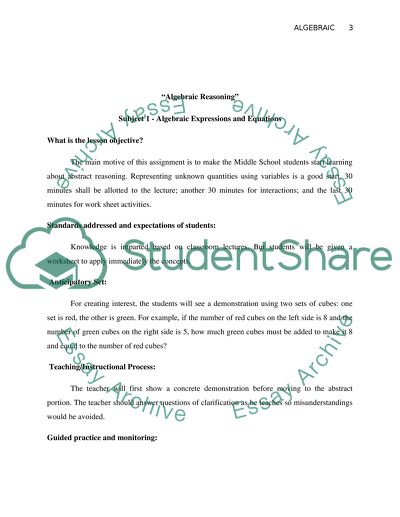Cite this document
(“Algebraic Reasoning Essay Example | Topics and Well Written Essays - 2500 words”, n.d.)
Retrieved from https://studentshare.org/miscellaneous/1526593-algebraic-reasoning
Retrieved from https://studentshare.org/miscellaneous/1526593-algebraic-reasoning
(Algebraic Reasoning Essay Example | Topics and Well Written Essays - 2500 Words)
https://studentshare.org/miscellaneous/1526593-algebraic-reasoning.
https://studentshare.org/miscellaneous/1526593-algebraic-reasoning.
“Algebraic Reasoning Essay Example | Topics and Well Written Essays - 2500 Words”, n.d. https://studentshare.org/miscellaneous/1526593-algebraic-reasoning.


